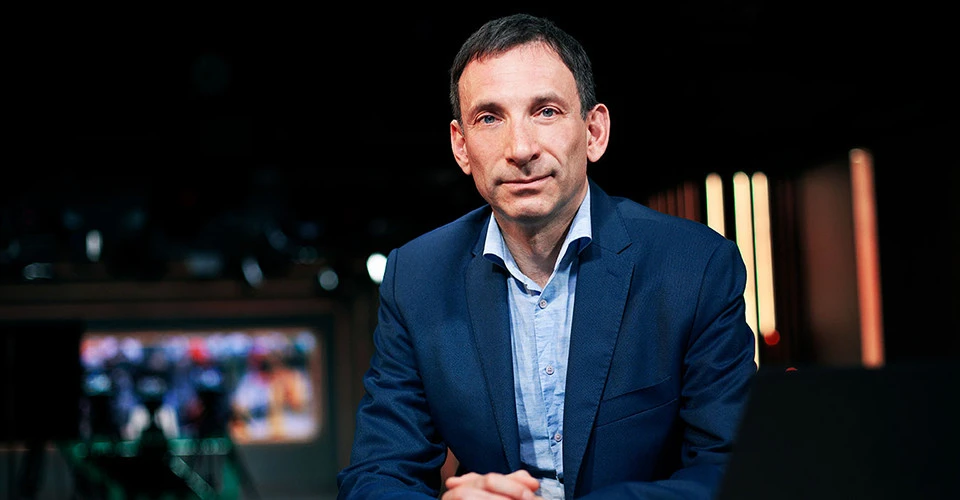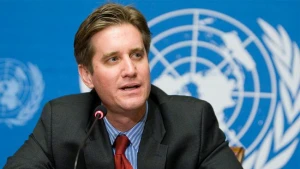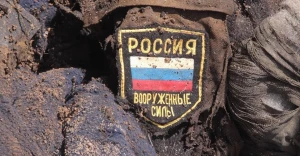
Russia threatens to destroy Kyiv hydroelectric station
Russian aggressors threaten to destroy Kyiv and Kaniv HPPs to force Ukraine to agree to 'peace'
Russian Foreign Ministry spokeswoman Maria Zakharova's statements about the destruction of the dams of the Kyiv hydroelectric power plant and the Kaniv reservoir are intended to blackmail Ukrainian society into accepting peace on Russia's terms.
The odious Russian foreign ministry spokesperson, Maria Zakharova, emphasized that Kyiv is preparing to destroy the dams of the Kyiv hydroelectric power plant and the Kaniv reservoir in order to blame Moscow for it.
It is obvious that the Ukrainian leadership has no need to organize huge environmental disasters on the territory of its own country in order to report Russian crimes: the Russians commit so many crimes that any imitation that can be attributed to them is, in my opinion, unnecessary from any point of view, and we understand perfectly well why Maria Zakharova makes such statements: it is primarily an attempt to shift crimes already planned by the Russian political leadership and military command onto Ukraine. This was the case when the Russians destroyed the Kakhovka hydroelectric power plant, and it was the case when a Russian missile hit the buildings of the Kyiv children's hospital Okhmatdyt.
As you know, the Russians never take responsibility for these numerous war crimes that they commit on the territory of Ukraine, and not only Ukraine: we know that these criminals have tried to do many things during their actions in the Middle East and in other former Soviet republics, but they always blame the victims themselves for their actions.
Therefore, Maria Zakharova's statement can be considered information about a delayed crime by the leadership of the Russian Federation itself, and it confirms the words of Hungarian Prime Minister Viktor Orban, who, after his meeting with Russian President Vladimir Putin, warned that the coming months of the Russian-Ukrainian war could be even more brutal and bloody than the previous two and a half years. I wonder what the Russian president said to his Hungarian interlocutor that led him to reach such a disappointing conclusion.
And I can say that we are now witnessing a new Putin's special operation to force Ukraine to peace on Russia's terms. It is becoming obvious that the President of the Russian Federation needs a pause in the hostilities: perhaps this is due to the economic and demographic situation in Russia itself, and Vladimir Putin did not want to start the process of large-scale mobilization of Russian citizens for the war with Ukraine. Perhaps Russia requires time to upgrade its technical capabilities, or perhaps it is the case that the President of the Russian Federation would like to wait for the results of the US presidential election to make a final decision on what his tactics should be in the coming years to destroy Ukrainian statehood.
However, Putin, as we can see, has started to talk quite often about the fact that he is ready to negotiate with Ukraine on the condition of withdrawal of Ukrainian troops from those regions that were annexed by the Russian Federation and became part of the Russian state in the schizophrenic imagination of Vladimir Putin and his sick compatriots: Donetsk, Luhansk, Kherson, and Zaporizhzhia regions. And, of course, along with this, Putin is demanding the demilitarization of Ukraine and its neutral status: that is, a return to all the conditions he set in the spring and February 2022, before the start of the great war between Russia and Ukraine.
If Putin is not listened to when he puts forward such proposals, it means that the Russian leader is ready to act to intimidate the population of the neighboring country, demoralize it, and force the Ukrainian authorities to agree to such a surrender in the face of growing environmental, demographic, and social crises. All of these actions that Russia has been taking recently are a kind of invitation to surrender — the trip of Hungarian Prime Minister Viktor Orban, which I have already mentioned, can be considered part of this plan, a trip that included travel to Kyiv, Moscow, Beijing, Washington, and Orban's meeting with former American President Donald Trump.
The Russian attack on the Okhmatdyt children's hospital in Kyiv, which was later accompanied by various propaganda statements, can be considered part of this operation to force a peace that is beneficial to Vladimir Putin: Both statements by members of the Ukrainian Parliament who were elected from the Servant of the People party that the very end of the war would be a victory for Ukraine, and a statement by former Russian President Dmitry Medvedev, who emphasized that even if Russia succeeds in getting peace from Ukraine on its own terms, sooner or later Russia will return to finally destroy what Medvedev calls "Banderite statehood."
Read also Ukraine's destruction after negotiations. Vitaly Portnikov's column
And now it is clear that Vladimir Putin has many more heinous crimes against the neighboring state in his plans, and now we know that Russia would like to organize a new major environmental disaster in the Kyiv and Cherkasy regions: to destroy the dam of the Kyiv hydroelectric power plant, of course, to destroy the Kaniv reservoir before the winter months, to cause new serious losses among the Ukrainian population, to the possible flooding of part of the Ukrainian capital.
And of course, Putin can be sure that in such a situation, Ukrainian society will demand that the Ukrainian leadership surrender on the terms offered by the President of the Russian Federation.
I think that we can imagine the list of these crimes, or maybe not: because we are well aware of the fact that we are not able to fully understand the full level of criminal desires of the Russian leader and what his environment can offer. They believe that only a victory over Ukraine in the war guarantees the continuation of Putin's rule and the strengthening of the authoritarian regime created by the Russian president against the backdrop of the annexation of Crimea, the conflict with Ukraine in 2014-2022, and then the outbreak of a major war with a neighboring state.
But Maria Zakharova's words, of course, should be taken very, very seriously: a cynical foreign ministry spokesperson would not just say that, it is obvious that her words contain part of the plans that are already being thought about in Moscow and for which they want to put the responsibility on the political leadership of Ukraine, on Ukraine as such, and, of course, on Ukraine's Western allies, who are the biggest enemies of the authoritarian Russian state in its attempt to realize Vladimir Putin's ambitions and return to the borders of the Soviet Union in 1991.
About the author. Vitaly Portnikov, journalist, Shevchenko National Prize winner
The editors do not always share the opinions expressed by the blog authors.
- News












































